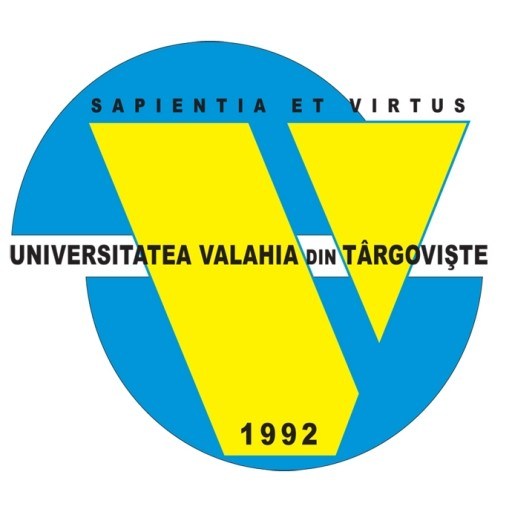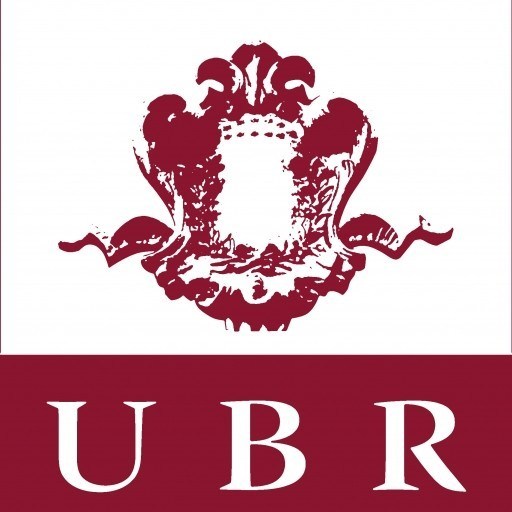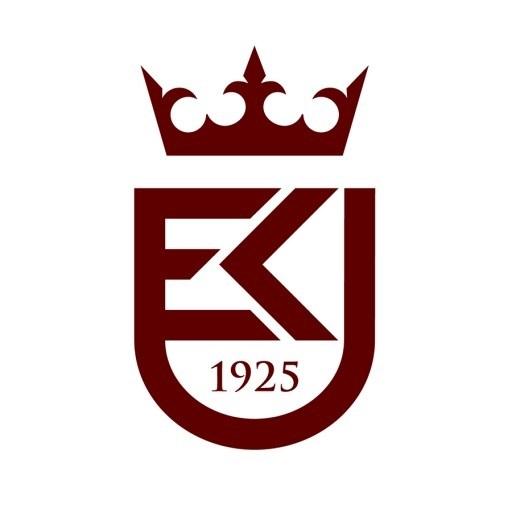Photos of university / #valahia.university
Program Description: East Central Europe Region Studies at Valahia University of Targoviste
The East Central Europe Region Studies program at Valahia University of Targoviste offers an interdisciplinary and comprehensive approach to understanding the historical, cultural, political, economic, and social aspects of the East Central Europe region. Designed for students interested in gaining in-depth knowledge of this dynamic area, the program combines theoretical frameworks with practical insights to prepare graduates for careers in international relations, regional development, cultural exchange, and policy analysis.
Throughout the program, students explore the rich history of East Central Europe, examining pivotal historical events, movements, and regional transformations that have shaped the contemporary landscape. The curriculum includes courses in regional history, political science, international relations, economics, and cultural studies, providing a well-rounded understanding of the complexities and interconnectedness of the region. Special emphasis is placed on regional integration processes, EU policies affecting East Central Europe, and current geopolitical issues impacting the area.
Students also develop essential language skills, with opportunities to learn or improve proficiency in regional languages, fostering effective communication and intercultural competence. The program encourages student mobility and exchanges with partner universities across East Central Europe, enhancing experiential learning and cultural immersion. Practical training, internships, and research projects allow students to apply their knowledge to real-world contexts, preparing them for careers in diplomacy, international organizations, cultural institutions, or regional development agencies.
Graduates of the East Central Europe Region Studies program will possess a nuanced understanding of the region’s complexities, the ability to analyze regional issues critically, and the skills necessary to operate effectively within multicultural environments. The program ultimately aims to cultivate informed, engaged, and capable professionals committed to fostering regional cooperation, sustainable development, and intercultural dialogue in East Central Europe and beyond.
Program Description:
The East Central Europe Region Studies program at Valahia University of Targoviste offers a comprehensive and multidisciplinary approach to understanding the historical, cultural, economic, and political dynamics of the East Central Europe region. This program is designed to equip students with a deep knowledge of the historical development and contemporary issues faced by countries in this strategically important part of Europe. Students will explore a wide range of topics including regional history, geopolitics, international relations, economic development, cultural diversity, and linguistic variations.
Throughout the course, students will engage with both classical and modern theories related to regional integration, identity formation, and cross-border cooperation. They will gain critical insights into the European Union’s influence on the region, the historical legacies of communism, post-communist transitions, and current political and economic trends. Special emphasis is placed on fostering intercultural understanding and building skills necessary for careers in international organizations, diplomatic services, regional cooperation agencies, and research institutions.
The program combines theoretical lectures with practical seminars, case studies, and fieldwork, providing students with an immersive learning experience. Students will also have opportunities to develop their research skills through thesis projects and participate in internships to gain real-world experience. The curriculum includes language courses tailored to strengthen communication within the region, as well as modern European languages.
Graduates of the East Central Europe Region Studies program will be prepared for diverse career paths, including diplomacy, international business, regional development, cultural management, and academia. They will leave with a solid foundation of regional expertise, analytical skills, and a nuanced understanding of the complexities shaping East Central Europe today. This program aims to develop informed, interculturally competent professionals capable of contributing effectively to regional and European integration efforts.
Admission to the East Central Europe Region Studies program at Valahia University of Targoviste typically requires applicants to possess a high school diploma or equivalent. Prospective students may be required to submit academic transcripts, a motivation letter explaining their interest in the program, and proof of language proficiency in English or another relevant language, depending on the program's language of instruction. The selection process may include an interview or entrance examination designed to assess the applicant’s knowledge of European history, geography, and regional issues, as well as their motivation and suitability for the program.
The program is designed to provide students with comprehensive knowledge about the history, culture, politics, economics, and societal dynamics of East Central Europe. To achieve this, students are expected to complete a fixed curriculum comprising core courses, electives, seminars, and practical components such as internships or project work. Core courses likely include regional history, political science, international relations, cultural studies, and economic development within East Central Europe. Electives allow students to specialize in specific countries or thematic areas, such as security studies or cultural heritage.
Students are usually required to engage in several research projects, contribute to seminar discussions, and produce a thesis or final project to demonstrate their understanding and analytical skills. Language courses in regional languages might also be part of the curriculum to enhance students' regional expertise. To ensure readiness for the labor market or further academic pursuits, the program may include soft skills training like communication, intercultural competence, and project management.
Throughout their studies, students are encouraged to participate in exchanges, internships, or fieldwork in East Central European countries, fostering practical experiences and regional connections. The program aims to prepare graduates for careers in diplomacy, international organizations, cultural institutions, research centers, or further academic studies. Overall, the program emphasizes interdisciplinary learning, regional expertise, and active engagement with current issues in East Central Europe, promoting a deep understanding of the complexities and diversity of the region.
Financing studies for the East Central Europe Region Studies program at Valahia University of Targoviste are primarily structured to support both domestic and international students through a variety of financial aid options. The university offers several scholarships based on academic performance, need, and merit, which can significantly reduce the financial burden on students. These scholarships are available to both incoming and current students, encouraging excellence and supporting talented individuals in pursuing their academic goals.
In addition to scholarships, the university provides guidance and assistance in obtaining external funding sources such as government grants, European Union funding programs, and partnerships with various organizations that support regional studies. The university's financial aid office ensures that students are well-informed about available funding opportunities, application procedures, and deadlines. Students are also advised on financial planning and budgeting for their studies, including living expenses, study materials, and travel costs.
Tuition fees for the East Central Europe Region Studies program are set in line with university policies and are typically paid on a semester or annual basis. The fees are designed to be competitive within the region and to reflect the quality of education provided. International students may have different fee structures, and the university offers support to facilitate their integration, including advice on affordable accommodation and cost-effective living arrangements.
Valahia University also encourages students to seek part-time employment opportunities during their studies, in compliance with national regulations, which can help offset living expenses. The university's strong connections with regional businesses and organizations also open avenues for internship programs and cooperative education initiatives that combine practical experience with financial support.
For students requiring specialized financial assistance, the university collaborates with local authorities and regional development agencies to develop tailored funding options. These initiatives aim to promote access to higher education for a diverse student body and to support the regional development goals aligned with the East Central Europe focus of the program. Overall, the financial support system at Valahia University of Targoviste is comprehensive, aimed at making higher education accessible, affordable, and sustainable for all students enrolled in the East Central Europe Region Studies program.
The East Central Europe Region Studies program at Valahia University of Targoviste offers a comprehensive multidisciplinary education focused on the historical, cultural, political, and economic aspects of the East Central European region. This program aims to equip students with a deep understanding of the diverse nations and peoples within this geographical area, examining their development, regional relationships, and integration processes within the broader European context. The curriculum includes courses on regional history, contemporary political systems, international relations, cultural studies, and regional economies, providing students with both theoretical knowledge and practical skills necessary for careers in diplomacy, international organizations, cultural exchange programs, and regional development agencies.
Students enrolled in this program benefit from a combination of classroom instruction, workshops, and seminars led by experts in history, political science, geography, and sociology. The program emphasizes language skills, encouraging the mastery of relevant regional languages, which are essential for effective communication and fieldwork. Additionally, students may have opportunities to participate in internships, exchange programs, and research projects that foster a practical understanding of regional issues and enhance employability after graduation.
Being part of Valahia University of Targoviste, a university with a strong tradition in social sciences and humanities, students also have access to modern research facilities and international academic partnerships. The program is designed to respond to the needs of the job market by graduates who are well-versed in regional geopolitics, cultural diversity, and socio-economic challenges. Graduates can pursue careers in regional policy analysis, international consultancy, cultural diplomacy, academic research, or work within NGOs dedicated to regional development.
Overall, the East Central Europe Region Studies program at Valahia University offers an in-depth, multidisciplinary approach to understanding this dynamic and historically rich region, preparing students for active participation in international and regional affairs. The program’s structure, emphasis on regional languages and practical skills, and connection to current regional issues make it an appealing choice for students interested in a career focused on East Central Europe.








